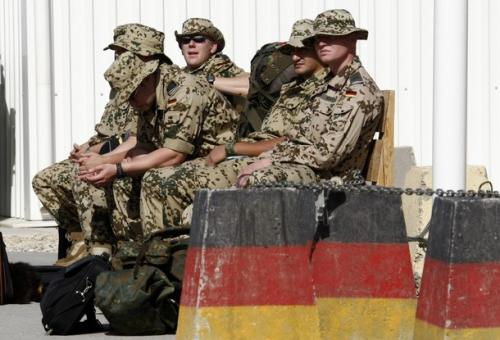 From IP-Global: No other country in Europe had as much ground to make up in the field of security policy after 1989 as the Federal Republic. Germany’s armed forces, the Bundeswehr, were created as the price for NATO entry in 1956, against massive domestic resistance, with a single mission: to defend the country’s 1,700-mile border along the Iron Curtain against a possible Warsaw Pact attack…
From IP-Global: No other country in Europe had as much ground to make up in the field of security policy after 1989 as the Federal Republic. Germany’s armed forces, the Bundeswehr, were created as the price for NATO entry in 1956, against massive domestic resistance, with a single mission: to defend the country’s 1,700-mile border along the Iron Curtain against a possible Warsaw Pact attack…
As a major civilian power Germany has a lot of experience to offer. And yet it exhibits an odd inability to act on lessons learned. In 1995, Berlin first promised police and judges for Ruanda, then for Bosnia, later for Kosovo, and then again for Afghanistan; today, Germany has a Center for International Peace Operations (ZiF) which prepares civilian professionals for international peace operations, and an “action plan” for civilian crisis prevention. Nevertheless, in all these operations including the current one in Afghanistan, Germany struggles to fulfil the promises made to its allies and partners; and each time we have blamed these shortcomings on our federal structures. (Police or other civilian personnel are mainly provided by the German Länder; and when they fail to do so, the federal government’s powers of persuasion or coercion are practically nonexistent.) Why are we not specifically training police for international deployments or administrators and trainers for nation-building projects? And if we can’t, why do we keep promising them?
All this is harmless compared to the problems facing the Bundeswehr. The military transformation initiated 10 years ago is now in a state of paralysis. Out of 253,000 soldiers only four battalions are ready for combat operations. The military leadership is holding on to compulsory military service because they see it as the cheapest way to attract qualified personnel; in reality it is merely tying up valuable resources. Rigid rules of engagement, inadequate equipment, and above all a public debate that denies operational realities: all this has created a deep sense of frustration in the armed forces, whose achievements have been extraordinary and who deserve better. (photo: Reuters)
Image: reuters_3_12_10.jpg
